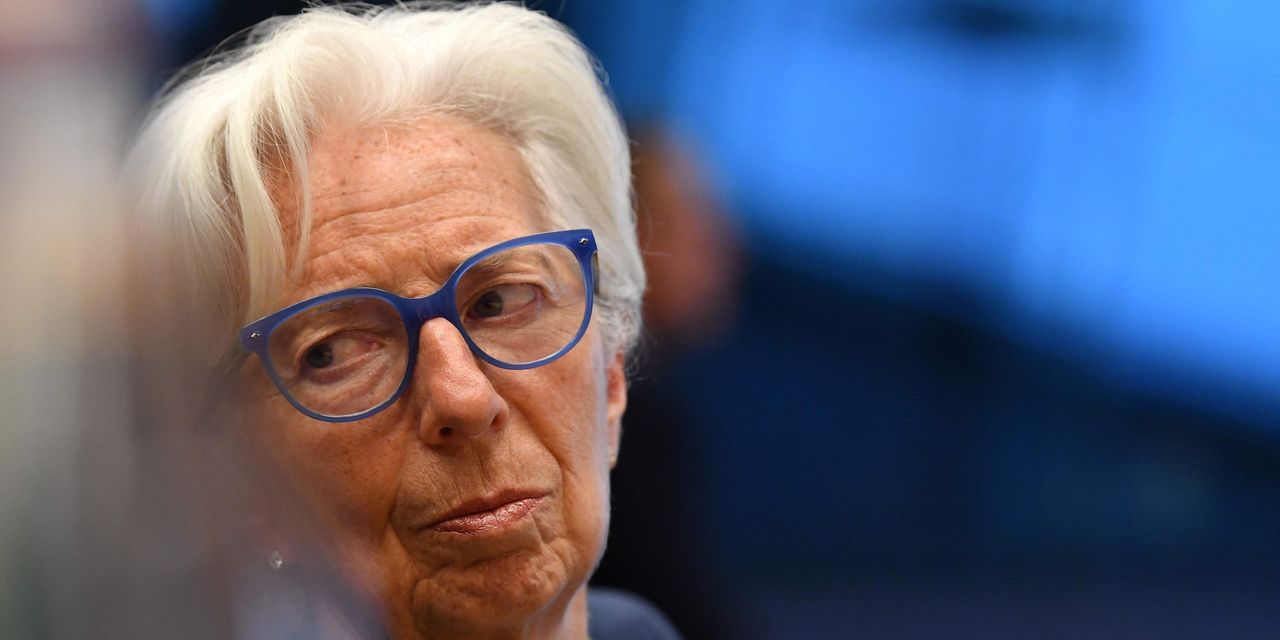The European Central Bank has revealed details of its latest bond-buying intervention mechanism as it seeks to ensure its first tightening cycle in more than a decade doesn’t cause heightened stress in the bloc’s debt markets.
But investors hoping the program would be deployed swiftly to underpin Italian assets amid a fresh bout of political turmoil in Rome may be disappointed, say analysts.
“The new tool…will only be used sparingly, as a backstop, and only at much higher spread levels that we are currently seeing,” said Jens Eisenschmidt, chief European economist at Morgan Stanley.
The new Transmission Protection Instrument (TPI) “is necessary to support the effective transmission of monetary policy, said the ECB. “In particular, as the Governing Council continues normalising monetary policy, the TPI will ensure that the monetary policy stance is transmitted smoothly across all euro area countries”.
The move towards ‘normalization’ accelerated on Thursday when the ECB raised borrowing costs by a bigger-than-forecast 50 basis points to zero percent, as it sought to combat record eurozone inflation, currently running at 8.6%.
Highly indebted countries’ such as Italy and Greece have already seen their government bond yields surge in recent months in anticipation of policy tightening. But ECB President Christine Lagarde is worried that yields may move beyond the levels justified by economic conditions, potentially delivering another eurozone debt crisis and risking the bloc’s fragmentation.
“Subject to fulfilling established criteria, the Eurosystem will be able to make secondary market purchases of securities issued in jurisdictions experiencing a deterioration in financing conditions not warranted by country-specific fundamentals,” said the ECB.
No limit was placed on the program, with the scale of the purchases hinging on the severity of the risks facing monetary policy transmission, the ECB said. Bonds of between one to 10-year duration issued by central and regional governments would be eligible for purchase, though securities of the private sector “could be considered, if appropriate”.
More fiscally prudent eurozone members such as Germany and the Netherlands have long argued that such ECB largesse only encourages fiscal lassitude, and their misgivings may be salved somewhat by the four criteria required for countries to be eligible for the aid.
These are: compliance with the EU fiscal framework; absence of severe macroeconomic imbalances; fiscal sustainability; and sound and sustainable macroeconomic policies that comply with the European Commission’s country-specific recommendations.

Source: FactSet
On Friday, traders resumed dumping Italian bonds
TMBMKIT-10Y,
after the resignation of Prime Minister Mario Draghi triggered a general election in September, raising fears of more political turmoil in the highly-indebted eurozone nation.
As benchmark German bund yields
TMBMKDE-10Y,
fell following surveys showing the continent’s biggest economy in contraction, the Italy/Germany spread widened to 230 basis points, signaling concerns Draghi’s departure would hobble economic reforms designed to improve Italy’s long term growth.
But it was unlikely the TPI would come to the rescue, said Mark Wall chief economist at Deutsche Bank.
“As expected, the tool cannot intervene to counteract country specific fundamentals, for example, driven by changes in fiscal policy. As such, there was no suggestion that the ECB was rolling out TPI to deal with the latest pressures on BTPs [Italian government bonds] given the political uncertainties in Italy,” said Wall.
Reinhard Cluse, economist at UBS, noted that the ECB said it would stop asset purchases if there was “a durable improvement in transmission, or based on an assessment that persistent tensions are due to country fundamentals.”
“We believe the latter formulation is a reference to countries such as Italy, which experience spread widening that is at least partly due to political or other domestic reasons,” said Cluse.



